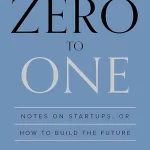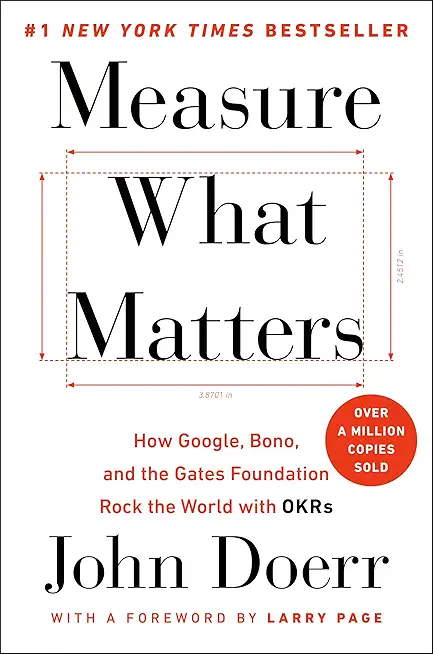
A Random Walk Down Wall Street – Burton G. Malkiel

Zero to One – Peter Thiel & Blake Masters
Title: Measure What Matters
Author: John Doerr
Main Idea
Measure What Matters explains how the goal-setting system of Objectives and Key Results (OKRs) can drive success for organizations and individuals by focusing efforts on measurable outcomes. It highlights how clarity and alignment through OKRs can transform performance and culture.
Key Points
-
Introduction to OKRs:
- OKRs stand for Objectives and Key Results, a framework that helps set clear, ambitious goals (objectives) and track measurable outcomes (key results).
- The system encourages transparency and alignment, ensuring that everyone in an organization is working toward impactful results.
-
Focus and Commitment:
- OKRs force teams and individuals to prioritize their most important objectives.
- By setting a limited number of OKRs, organizations avoid spreading resources too thin and increase the likelihood of achieving meaningful progress.
-
Tracking and Accountability:
- Regular check-ins and updates on key results keep efforts transparent and maintain accountability.
- Progress is continuously measured, allowing timely adjustments and course corrections.
-
Stretch Goals:
- OKRs often include aspirational, ambitious goals that encourage teams to reach beyond their comfort zones.
- These “stretch” objectives foster innovation and motivate higher performance while acknowledging that not all key results may be fully achieved.
-
Alignment and Collaborative Culture:
- OKRs promote organization-wide alignment by connecting individual, team, and company goals.
- This cultivates a collaborative culture where everyone understands their role in the broader mission.
-
Examples from Leading Companies:
- John Doerr shares case studies from tech giants like Google, illustrating how OKRs contributed to their explosive growth and innovation.
- The framework’s adaptability across various industries demonstrates its broad applicability.
-
Continuous Learning and Adaptation:
- The OKR process encourages reflecting on successes and failures to improve future goal-setting.
- This iterative approach helps organizations stay agile in a fast-changing environment.
-
Leadership and Transparency:
- For OKRs to be effective, leadership must be fully engaged in setting and communicating goals.
- Transparency in sharing OKRs fosters trust and encourages a results-driven mindset throughout the company.
Review
- John Doerr’s Measure What Matters offers a practical and inspiring guide to implementing OKRs effectively. The book combines theory with real-world examples, making it accessible for leaders and teams aiming to improve focus and execution.
- It stresses that measurable goals are not just for tracking performance but are essential tools for creating intentional, motivated, and high-impact work environments.
Recommendation
- This book is highly recommended for business leaders, managers, entrepreneurs, and anyone interested in goal-setting techniques that deliver tangible results and foster organizational growth.

